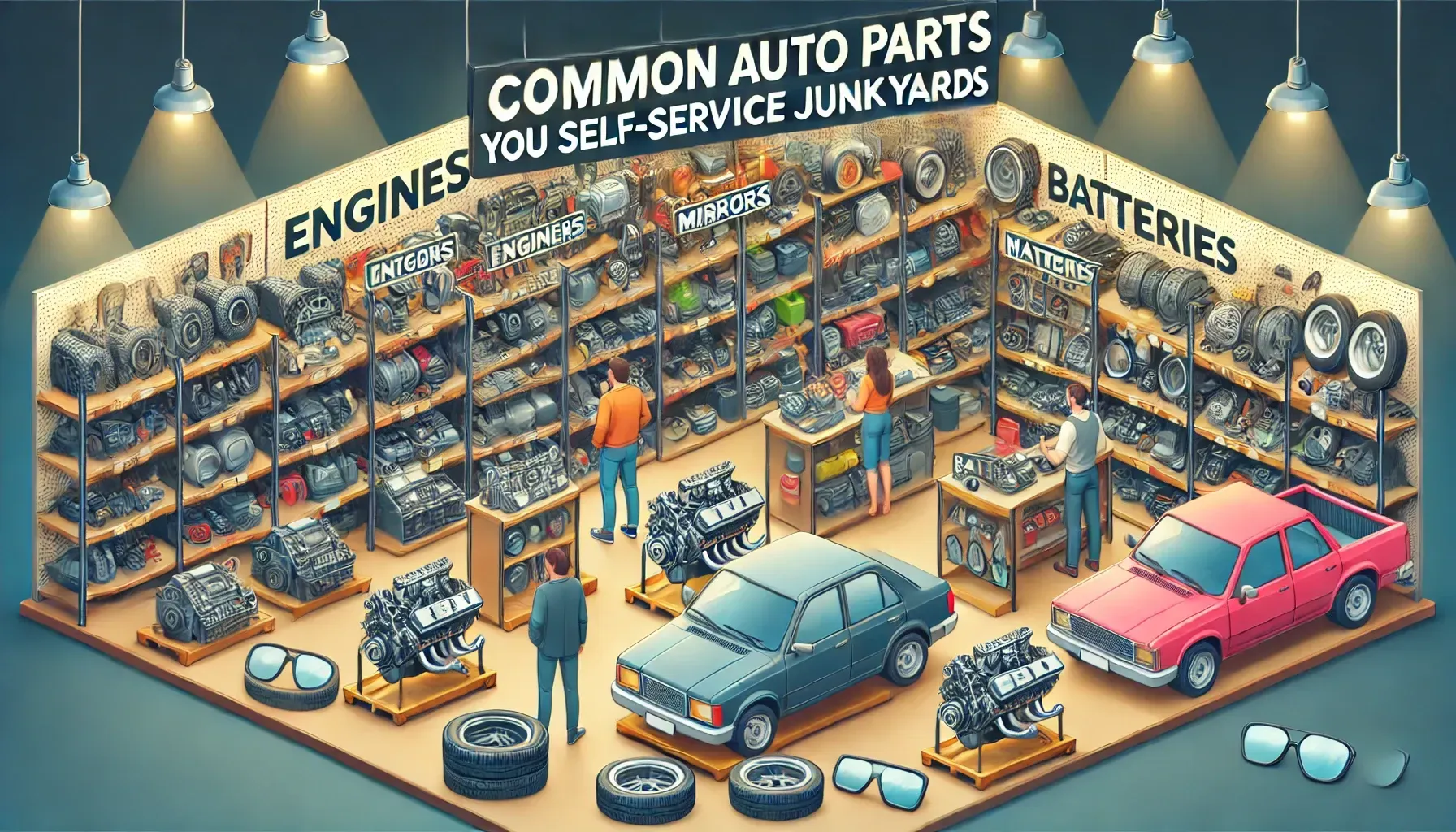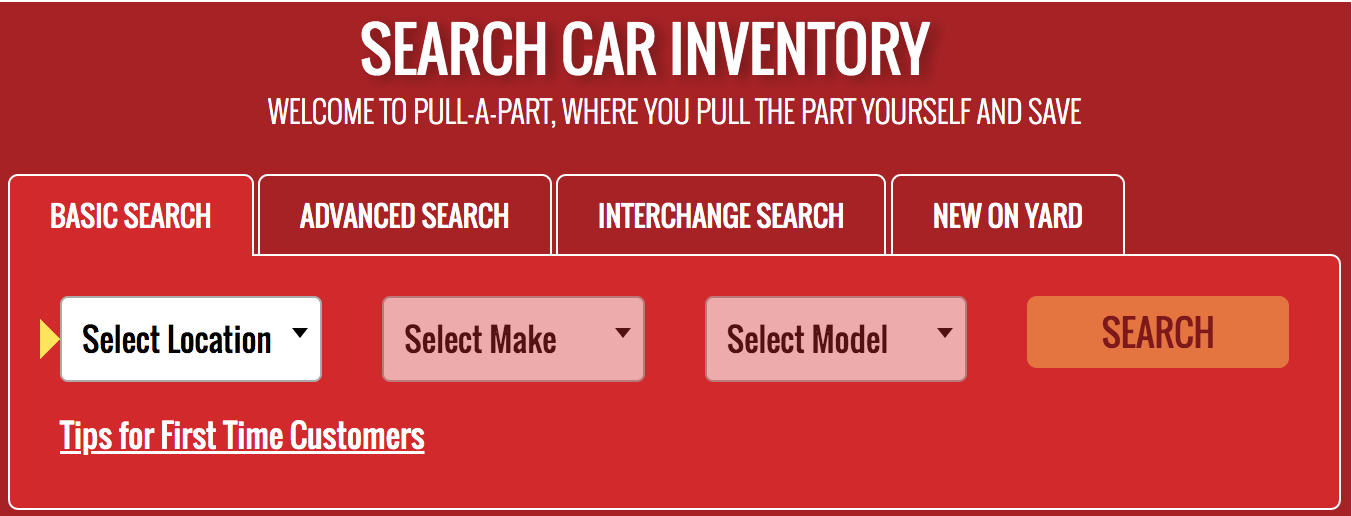When Should You Sell Your Car to a Junkyard? Key Signs to Watch
Find a Local Junkyard
ALABAMA
ARIZONA
COLORADO
FLORIDA
GEORGIA
INDIANA
KENTUCKY
LOUISIANA
MISSISSIPPI
NEW MEXICO
NORTH CAROLINA
OHIO
PENNSYLVANIA
SOUTH CAROLINA
TENNESSEE
TEXAS
Deciding whether to keep repairing your aging vehicle or finally let it go can feel like an endless tug-of-war between sentimentality and practicality. Some days, you’re ready to sink more money into repairs; other days, you’d rather call it quits. If your car is showing signs of constant breakdowns or demanding more in repair bills than it’s worth, you may already be facing one of the biggest indicators that it’s time to junk your car. In this post, we’ll walk through the “Key Signs It’s Time to Junk Your Car” so you know exactly when enough is enough. By the end, you’ll not only spot those warning flags early but also feel confident about your decision.
Summary
This blog post stands out by blending real-world insights, step-by-step tips, and buyer research strategies for a seamless, profitable junk car sale.
- Persistent breakdowns and costly repairs are early red flags
- Researching local junk car buyers helps secure better offers
- Preparing documentation and cleaning out the car boosts perceived value
- Negotiating based on parts in decent condition can increase your payout
- Understanding environmental and legal responsibilities ensures a smooth, responsible sale
Key Signs It’s Time to Junk Your Car
One of the most obvious signs it’s time to junk your car is when it seems to need constant TLC. If you’re heading to the mechanic more often than you’re driving your car for everyday tasks, you might already be at or past the tipping point. Repeated breakdowns don’t just cost you money; they also eat up your time and disrupt your schedule. Over time, the frustration builds, and the expenses quickly become a financial burden that can outweigh any sentimental value you have for the vehicle. Another major warning flag is when the cost of necessary repairs rivals—or outright exceeds—your car’s current market worth. Often, owners hold on to older cars, hoping a single big repair will buy more time. However, the reality is that after sinking funds into pricey fixes like a transmission overhaul or engine replacement, new issues can still surface. This cycle can send you into a spiral of endless maintenance bills, and at some point, it’s more practical to cut your losses. If you’re unsure how your expenses stack up, make a simple chart of repairs and estimated resale value to see if you’re in the red. Safety is another crucial consideration. Worn-down brakes, rusty frames, or failing airbags can put you and your passengers at risk. Some cars may pass a state inspection by the barest margin but can still be dangerously unreliable on the road. That’s a sign it’s more than just an inconvenience—it’s a serious hazard every time you turn the key. Additionally, if you notice that your vehicle consistently fails emission checks or is nearing the point of no longer being street-legal, it may be time to explore more dependable options. Finally, trust your instincts. If you find yourself constantly worrying about the next breakdown or the next hefty garage bill, it could be your cue to look into junking your car. While older vehicles can carry sentimental value, the peace of mind that comes from owning a safe, reliable car is priceless. Taking stock of repair costs versus overall value, considering the impact on your daily routine, and being mindful of safety are all part of making an informed decision. By recognizing these red flags, you can avoid prolonging a stressful situation and start exploring more cost-effective, safer alternatives.
Where to Find the Best Junk Car Buyers
Finding the right junk car buyer begins with a bit of research and comparison. Start by checking online listings for local junk car buyers, “cash for junk cars” services, or salvage yards with positive reviews. It’s also wise to join community social media groups or forums where people often post first-hand experiences and recommendations. Once you’ve gathered a few potential leads, dig deeper by reviewing their websites, scanning customer feedback, and confirming if they offer pick-up services or if you’ll need to transport the vehicle yourself. While it might be tempting to accept the first offer you receive, it pays to speak with at least two or three buyers to get a sense of how they operate and ensure you’re getting a fair deal.
When comparing buyers, ask about their pricing structure and whether any hidden fees could reduce your payout. Some junk car services build towing fees into their initial quote, while others might tack on extra costs later. Verify the buyer’s reputation by asking for references, checking with consumer protection agencies, or scouring online reviews. Getting a written or emailed quote is ideal, as it helps prevent misunderstandings once you hand over your vehicle. Remember to keep a record of every quote, even from those you decide not to choose, so you can easily compare offers. By taking these steps, you’ll stand a much better chance of finding a buyer who respects your time, offers a transparent valuation, and ensures you don’t undersell your car.
How to Get the Most Cash for Your Junk Car
A little preparation goes a long way when it comes to squeezing out every dollar from your junk car. Start by gathering your vehicle’s title and any maintenance records that can prove its past care. While it might not be roadworthy now, showing that it was serviced regularly can boost buyer confidence. Make sure you’ve also removed all personal belongings, license plates, and any aftermarket add-ons you might want to reuse or sell separately. Even little details—like cleaning out the interior—can leave a better impression on potential buyers and possibly lead to a slightly higher offer. Next, approach negotiations with a good understanding of your car’s overall condition and market value. If you know certain parts still work well—like the battery or recently replaced tires—make that clear upfront. Potential buyers may be more inclined to offer a higher quote if they can salvage profitable components. Don’t be afraid to request itemized explanations of how a buyer arrived at their figure; ask whether they weigh certain parts or consider the car’s age and model more heavily. With that information in hand, you can compare bids accurately and negotiate from a position of strength. Ultimately, a little homework and a proactive attitude will help you maximize your return and walk away confident you got the best deal possible.
Selling Responsibly and Finalizing the Deal
Finalizing the sale of a junk car involves more than just signing over the title; it’s about ensuring all legal and environmental responsibilities are met. Start by confirming the paperwork required in your state, which often includes transferring the title to the new owner and completing any release-of-liability forms. This step protects you from future claims or fines if the car is misused or remains registered in your name. Be prepared to show proof of ownership, remove your license plates, and cancel your insurance policy. It’s also wise to keep copies of all documentation for your records. If the buyer offers to handle part of the process, make sure you understand exactly what they’re doing so your obligations remain clear. In addition to paperwork, consider the environmental impact of scrapping your vehicle. Reputable junkyards typically follow rules for draining and disposing of hazardous fluids, like oil and antifreeze, in an eco-friendly manner. However, it never hurts to ask about their practices to ensure they’re disposing of waste responsibly. If you’ve purchased aftermarket parts—like a sound system or custom wheels—hang onto them if possible. Salvaging components that still work keeps them out of landfills, can be reused, or possibly sold for extra cash. By staying informed and proactive at every step, you’ll not only wrap up your transaction properly but also walk away knowing you’ve handled your junk car in a way that’s safe, responsible, and beneficial both for you and the environment.
Ready to turn that junk car into cash? Schedule your free valuation today!
Making the decision to junk your car can feel overwhelming, but knowing the warning signs and following the right steps can simplify the process. From spotting persistent repairs that drain your wallet, to finding reputable junk car buyers and negotiating a fair price, you now have a roadmap to handle each phase with confidence. By preparing your vehicle, gathering essential paperwork, and asking the right questions, you’ll increase your chances of a smooth transaction and a better payout. Most importantly, you’ll be making a responsible choice—both financially and environmentally. Keep these insights in mind, and you’ll be well on your way to letting go of that old vehicle with peace of mind and a bit of extra cash in your pocket.




